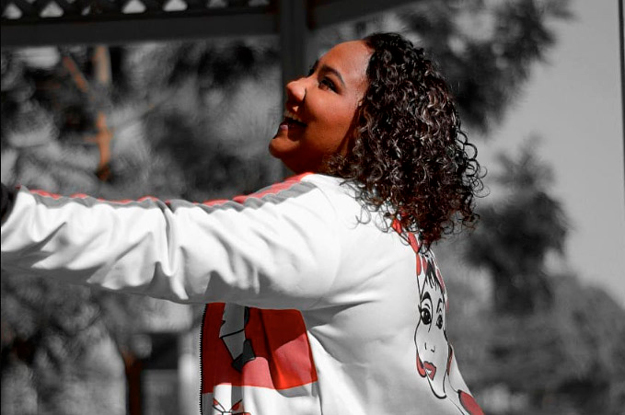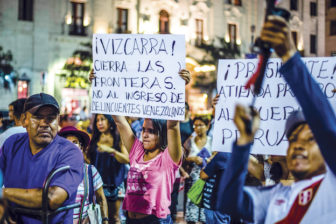Reymar Perdomo wrote “Me Fui,” a song about leaving Venezuela, to express her own despair at having to abandon her home, her family and all she’d known. She ended up giving voice to the Venezuelan diaspora, an estimated four million people who are fleeing the country’s political and humanitarian crises.
Perdomo, 29, had been a contestant on various local televised singing competitions, including the reality show Generación S, in 2016. When she decided to leave for Peru to look for economic opportunities, as an estimated 100,000 Venezuelans have already done, she faced many of the hardships other migrants encounter: she was assaulted while crossing the border, and spent days eating little, working odd jobs and dreaming of reuniting with her family. She wrote “Me Fui” to get this story off her chest.
Once in Peru, she gave a spontaneous performance in a park in February, and sang the song. A member of the audience captured it on a cell phone video. It went viral, and transformed her life. Perdomo spoke to AQ about leaving Venezuela, the surprising reactions to her song, and her hopes for her country.
AQ: What is your message for those who listen to your song, especially the Venezuelan diaspora?
Perdomo: This song refers to a moment in my life that also connects to the lives of many other Venezuelans around the world. Some of us cannot buy a plane ticket to a different continent, so we migrate to other Latin American countries. I am convinced that we all need to be more consciousof the reasons why we should unite. Beyond all the scarcity and disgrace we are facing, we must see each other as part of the same family, as brothers and sisters. As Venezuelans, we must continue to believe in Venezuela, and rebuild our land from whatever corner of the world we might be. I hope I can be a voice for those kinds of actions.
What is the story behind this song?
I left Venezuela on December 2, 2017, and arrived in Peru six days later. I only had a guitar and a small bag. I was robbed, and could only keep the money I had in my hands and the guitar. I was so angry and felt like everybody around me was guilty for what I had been through. Then I put all my thoughts on a piece of paper, to get it off my chest. A few days later, I realized there was a song and added the melody.
One day I was singing in the Kennedy Park, in Miraflores, Lima, as usual. But unexpectedly a Peruvian boy recorded me on his phone. Later he posted it on YouTube and tagged me. The video jumped from 7 views the first day to a hundred thousand the following day. It went viral.
What was your plan when you left Venezuela?
My plan was to find more opportunities to be a singer. I was a music teacher in Venezuela. I worked at the Ministry of Education. I thought it would be easy to find a job here in Peru singing in clubs, restaurants, and hotels. Then I realized how hard it is. Despite what your degree was or the job you had back in Venezuela, you are nobody here. It doesn’t matter. I tried hard but didn’t find an opportunity. So I decided I would try to make a living from singing, which I always prefer to any other job.
During the last weeks, there has been also backlash against you. People have criticized you, saying you had ties to the Maduro government. What do you have to say to those who use politics to try to diminish what you do?
The biggest surprise for me is how information can be manipulated on social media, and used to destroy our own brothers and sisters. My song is causing a lot of stir worldwide. That gets many people upset. It’s sad how politics prevents people from seeing talent, and how it is used to harm others. Unfortunately, there isn’t much I can do about it. I can just keep walking with my flag.
I don’t identify myself with any political tendency. I am an artist. I wrote what I felt in a song, and I hope people can see what I really am. We have forgotten that we are Venezuelans, not chavistas or opositores.
Your song is inspired by the experience of leaving. How would a song about returning look like?
I look forward to going back some day. In fact, I am now writing lyrics that project the future I hope to live. I will be patient about returning home, and seeing the day we all can have a big party and laugh about what has happened. I hope we can embrace our neighbors and brothers, cry for those who are gone. I hope there will be a time to remember that everything happened for a reason, and the new generations will have a better life. I wish at some point we will share in a patio altogether, play dominos, share a cold beer and some arepas.
—
Hernández-Tapia is an editor for AQ






